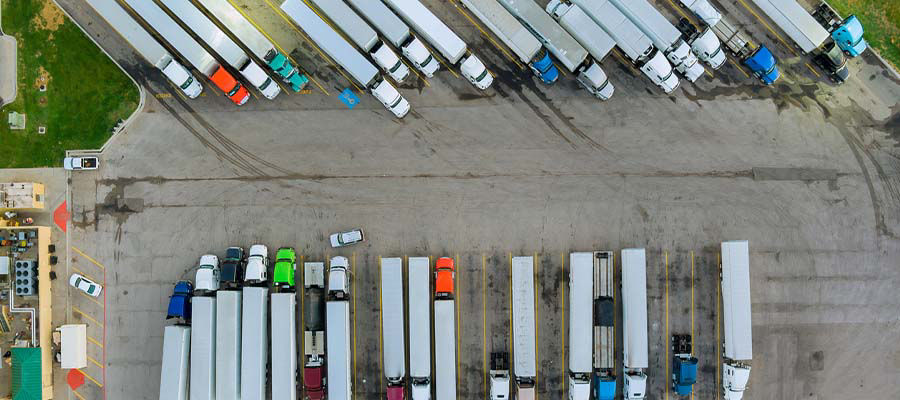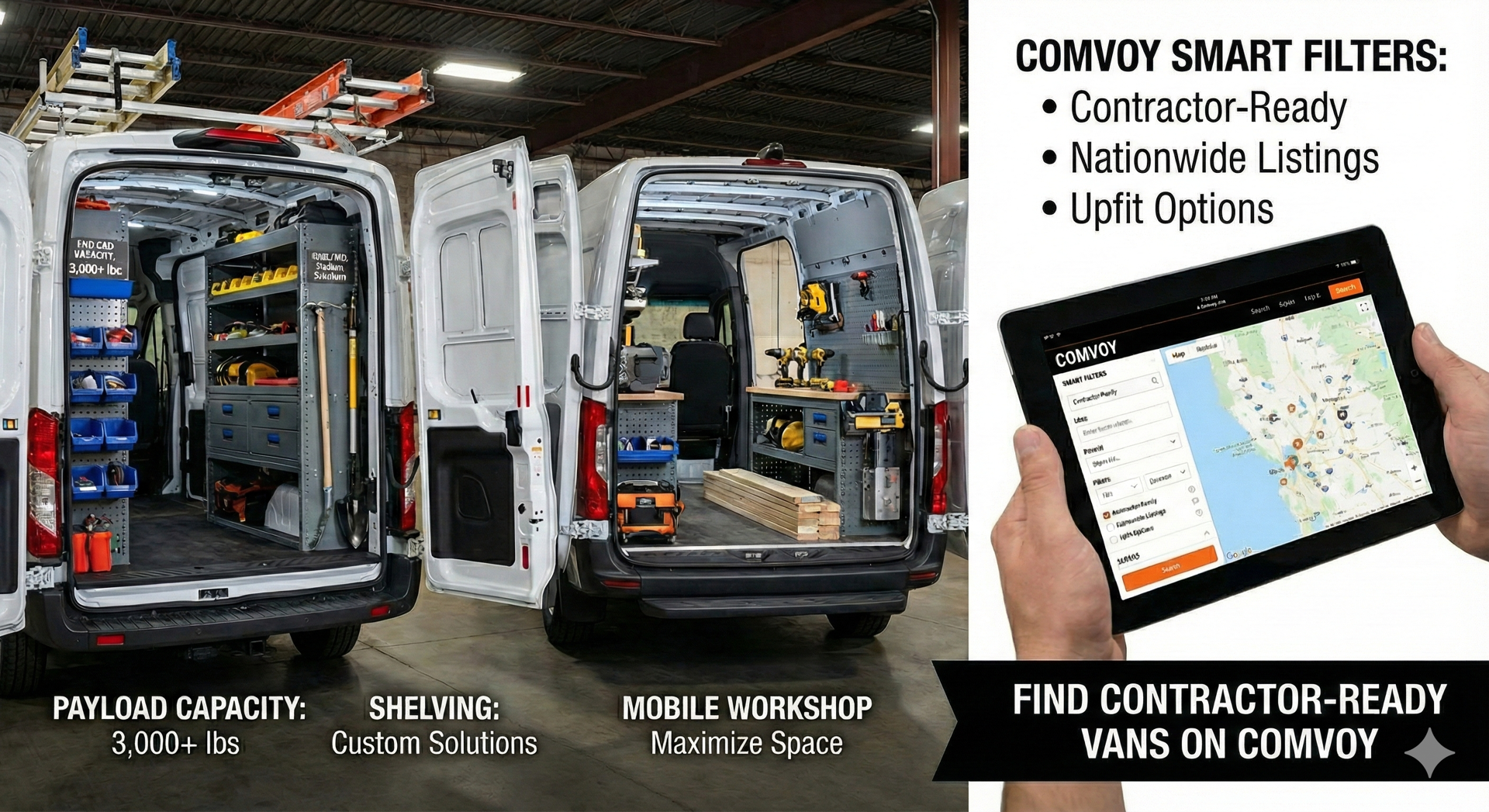What to Know When Buying Used Commercial Vehicles


What to Know When Buying Used Commercial Vehicles
Multitudes of factors are in play for buying a commercial vehicle. The first—after deciding it’s time to purchase a commercial van, box truck, reefer, straight truck, tractor, or trailer—is whether to buy new or pre-owned.
If you’re looking to the pre-owned market for your next truck, you’re not alone. Close to 60% of all class 8 trucks purchased by owner-operators are actually pre-owned, according to the Truck Purchase and Lease Survey by Overdrive.com. The numbers are similar for class 2-7 vehicles as well. And, these numbers are rising with the current semi-conductor shortage that is stalling the production of new trucks.
Yet, no matter how comfortable you and others feel about buying pre-owned versus new, when shopping, you still need to be vigilant. Knowing what to consider will help you make a well-informed purchase. The best practice when buying pre-owned commercial vehicles? Stick with dealers you trust, and that can produce a valid history of preventive maintenance (PM) on each vehicle. But, this is just scratching the surface.
Why buy used?
The initial choice of buying a used commercial vehicle may be as simple as cost, lifecycle, or control of the asset. A new commercial vehicle is a significant investment for a business. Especially depending on the vehicle’s use. A used vehicle in great condition that can get the job done can save a company thousands of dollars. A company may also choose to buy used to have the title of the asset sooner, not wanting to lease.
When deciding to purchase, you need to go into the experience with an idea of what you want and need from a vehicle. As a buyer, you need to ask:
Am I ready to buy?
What type of vehicle do I need? CDL or non-CDL?
What type of engine do I need?
Do I know what we are using the truck for? Our routes? Our freight?
What type of deliveries am I making? Dock to dock, curbside, or truck to ground?
What is the expected engine life of the vehicle?
How much out-of-pocket expenses do I need? Do I need a loan?
How to I plan on protecting my investment after purchase? Extended warranty
How do I plan on maintaining my investment after purchase? Routine and other repairs.
Do your homework
Just like when you are purchasing a personal vehicle, do not settle for the first commercial vehicle you find—even if you are sure it’s the one for you. Another seller may have the same vehicle at a better price, lower mileage or idle time, better maintained. It’s possible a seller has a vehicle you haven’t even considered, but when speaking to them, you realize that vehicle is better suited for your needs. Whether you're comparing options for a pest control truck, service body, or a box truck, narrowing your search to two or three options before deciding will save you money and improve long-term efficiency.
Ask for the vehicle’s history. Trusted used truck sales centers will have them available. Learn how the vehicle was maintained and by whom. See how many owners the vehicle has had, as well as accidents, mileage, upgrades, regulatory compliance factors, and engine faults. This will give you a holistic view of each vehicle you are considering.
For example, all Ryder Used Vehicles come with complete vehicle history. Most have had just one owner—Ryder—and have been maintained on schedule by Ryder technicians. The vehicles also go through a rigorous check before being listed for purchase.
Once you confirm the vehicle’s history, you can assess its current condition. Check for damage, appearance, etc. Most sellers will let you take the vehicle for a test drive. Ryder allows you to schedule test drives in advance. You may also want to take into consideration the value of extended warranty protection options and safety service options.
Maintain your investment
All vehicles can break down. It doesn’t matter if it is new or used. Normal wear and tear can lead to components failing or belts braking. For used vehicles, most are at half or over half of their expected lifecycle. When deciding to purchase a used vehicle, you need to factor in regular maintenance both in price and how you will maintain the vehicle. This includes understanding the typical repairs and intervals for specific original equipment manufacturer’s components.
An excellent maintenance schedule can increase the life cycle, maximize uptime, and, ultimately, pay dividends for you and your business. Ryder offers used vehicle customers preventive maintenance packages that provide flexibility, savings, and uptime.
Buy from someone you trust
Let’s face it, the purchase of a used commercial vehicle is not a simple decision or process. Finding, and using, a trusted source or seller can make all the difference. This source is someone who will tell you everything about the vehicle, help you find what is best for your needs, and puts you in the vehicle at the right price for you. It’s someone who can offer more than just a truck—be it maintenance, financing, and peace of mind.
The tips above are just some of what to consider when you’re in the market for a used commercial van or truck. Check out Ryder's Used Vehicle Buyer’s Guide for more.







